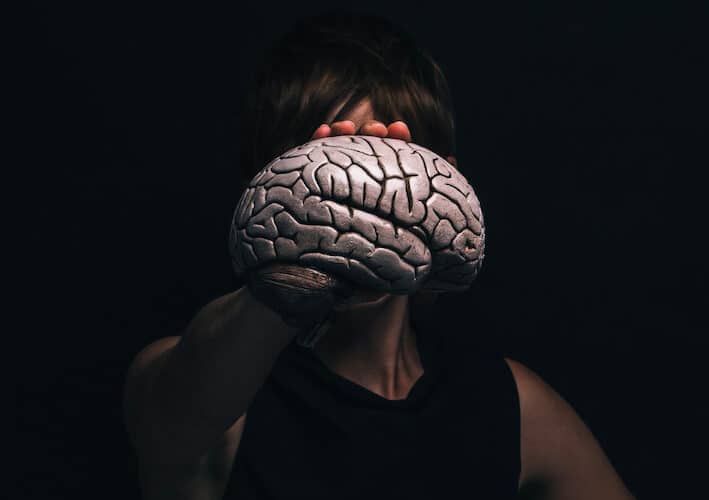Here’s the surprising truth about brain health: there is a lot you can do.
If your brain was like a bicep, you may exercise it everyday, rewarded by the tone and definition you were developing with each passing workout. The central command center of the body, the brain is an organ that acts much like a muscle. You may not see the benefits to brain health, but scientists say that doesn’t mean you shouldn’t put in the effort. In fact, there are many things you can do to make your brain healthier, and in some cases, postpone the onset of neurodegenerative diseases like Alzheimer’s. Aside from adhering to a good Mediterranean-based diet, here’s what leading researchers around the world say you can do to improve brain health.
Step One – Get a cognitive assessment
Like stepping onto a scale to measure your starting weight, you’ll need to know where your starting point is when it comes to cognitive health. Different people have different capabilities when it comes to memory. What you need to know is what yours is before you encounter a problem. Assessing your cognition can be as simple as an online test, or may involve more thorough assessments that include MRIs or genetic and blood tests to identify your risk factors for Alzheimer’s disease. Dr. Pierre Tariot, director of Banner Alzheimer’s Institute, explains why getting assessed early can help those diagnosed with dementia manage the disease.
Step Two – Consult a doctor to see if you should get a genetic test
Some doctors may tell you not to get a genetic test unless you have a specific reason to. Finding out your genetic status can often lead to more stress. However, knowing your genetic predisposition may in some cases help you assess your risk. Dr. Marwan Sabbagh, head of Cleveland Clinic’s Lou Ruvo Center, explains how genetics can help with diagnosis.
Step Three – Understand risk factors to the brain
“What’s good for the heart is good for the brain” is a refrain often used by experts who agree there are many risk factors you can monitor that impact your brain health. Vital to your health is blood pressure. A recent study found that high blood pressure in your 30’s and 40’s showed increased damage to the blood vessels and the overall architecture of the brain.
The amount of glucose in the blood is another important indicator of brain health. Check your A1C or blood sugar levels. Anything at 5.7 percent or higher is considered a pre-diabetic level, and you are putting your brain at risk. In fact, people with Type 2 diabetes have a 75 to 100 percent higher risk of developing dementia.
Step Four – Monitor vitamin D and vitamin B12 levels
Vitamin D, scientists say, plays a critical role in brain health. Dr. David Llewellyn, a senior researcher at the University of Exeter, says your brain is filled with vitamin D receptors that protect blood supply to the brain and, in some studies, have been shown to break down amyloid plaques, a hallmark of Alzheimer’s disease.
The body’s inability to absorb vitamin B12 has been linked to neurological disorders. As people get older, their ability to absorb vitamin B12 in the stomach declines. Studies have found that increasing your levels of B12 may slow cognitive decline.
Step Five – Learn new things like a language or playing a musical instrument
Neuroplasticity is the ability of the brain to reorganize synaptic connections, and scientists are discovering more about why challenging yourself is important for your brain health. This is why learning something new like a foreign language or playing a musical instrument is so important. Experts say if you have always done crossword puzzles, then continuing to do them is not necessarily improving neuroplasticity. But doing things outside of your routine, even something as simple as writing with your less dominant hand, may build better nerve connections in your brain.
Step Six – Meditate for at least 30 minutes a day, every day
Harvard neuroscientist Sara Lazar has been studying the impact of meditation on the brain and found that people who regularly meditate are actually adding grey matter to the hippocampus, the area of the brain responsible for memory. In fact, Dr. Lazar’s study found that just eight weeks of meditation could increase the thickness of not only the hippocampus but also an area known as the pons, where neurotransmitters are created.
Step Seven – Aerobic exercise
If you had to pick just one thing to do to maintain brain health, it may be aerobic exercise. New York University neuroscientist Wendy Suzuki says exercise stimulates neuronal growth factors that make the brain produce more brain cells inside the hippocampus. Dr. Suzuki says to think of it as a neurochemical bubble bath, increasing the flow of chemicals like dopamine and serotonin, which are critical to neurotransmission.
Step Eight – Sleep!
Sorting between light, REM and deep sleep, how do we know which benefits our brains the most? Scientists agree deep sleep is imperative to brain health. Only in the deep phase does the glymphatic system, the brain’s waste manager, kick in. When in deep sleep, not only does your brain rid itself of waste, but it also cycles nutrients like glucose, lipids and amino acids through the brain.






So what’s fasting got to do with the brain? A lot, in fact. Intermittent fasting lowers your risk for neurodegenerative diseases like Alzheimer’s and Parkinson’s; it prevents neurons in the brain from getting damaged or killed; it improves learning and memory; and it can also ease depression.
It’s interesting how the older you get, the harder the ability your body absorbs Vitamin B12. My grandfather wants to improve his brain healthy because of an experienced he went through. we will find him a nutrient therapist for more options and recommendations.
I like how you mentioned learning a new language. My aunt wants to keep her mind healthy as she gets older. I’ll have to help her find a language she wants to learn.